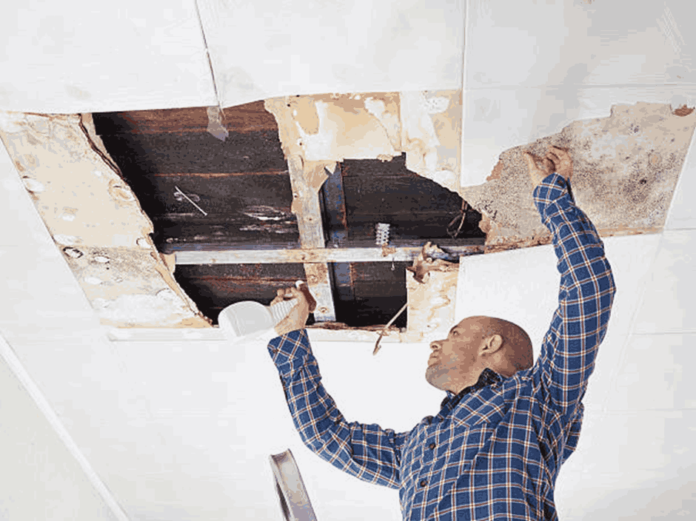When a home is being constructed, several preventative measures are put in place to ensure that the structure’s foundations are resistant to the destructive effects of water. However, Slab Leak repair by expert concrete floors may develop water leaks over time or simply due to Mother Nature, which can have undesirable long-term consequences. These leaks can occur in several ways. To stop future damage to your foundation, you should educate yourself about the factors that cause leaks and the solutions to these problems
The Causes of the Water Seepages:
The realisation that their houses have water leaks is likely to cause anxiety for a sizeable proportion of the population of California. This kind of problem may have a broad range of underlying causes, and the ease with which it can be remedied can be quite different depending on the form of the leak and the extent to which it has spread. One of the most common reasons for concrete floor deterioration, which is also one of the causes that can be avoided with the least effort, is moisture in the soil around the foundation. When the ground becomes saturated with water, as might happen due to intense precipitation or snow melting, the water tends to run around the perimeter of the foundation.
In certain environments, this might prove to be problematic. If your foundation does not have adequate insulation, is too porous, or has cracks in it, then it is possible for moisture to be introduced into the slab and then water to later emerge in the basement. It may happen if your foundation has fractures in it. Leaking may also be caused by gutters collecting water, another factor contributing to the problem. If a home’s gutters are situated in a location that is too close to the outside walls of the house, the buildup of water may cause the house’s concrete walls to degrade. You may be able to save yourself some trouble in the short, medium, and long term if you move the downspouts to a new position.
Problems Inside Produce Leaks:
In addition to the sources on the outside, there are also sources on the inside that might cause moisture to seep through concrete flooring. If the pipes in the basement are old or damaged, then there is a possibility that water may leak over the walls of the basement. In addition, insulation that is too airtight can impede the natural evaporation of moisture in the environment. When condensation makes contact with concrete walls, it will ultimately turn into water and flow down the walls in the form of runoff.
If the walls have fractures inside, water may seep in and get trapped within the concrete, leading to mold formation and degradation of the concrete. Water may seep in and become trapped outside the concrete if the walls have cracks.
Where Can I Find Information on How to Fix Cracks in a Concrete Floor?
Install a Drain in the French Style:
When the soil in the area surrounding the foundation is saturated with water, there is a substantial possibility that water may leak through, especially if the underlying issue is not addressed and fixed. Implementing a drainage system in the region near the foundation has shown to be an extremely successful strategy for addressing the problem, as evidenced by the positive results obtained from the test. The construction of a French drain offers a method for transporting some of the water accumulated against the outside wall to a drainage basin situated below; nevertheless, this will not solve the problem completely. If the barrier being used is in good condition and free of obstacles produced by several circumstances (roots, sediments, etc.), then this system will perform as it was designed to. Without a functioning dam, the system will not perform as expected. If this turns out to be the case, it will be necessary to clean up the drain if a hatch is included in installing the system. In the alternative scenario, the system will need Slab Leak repair by an expert before it can help maintain the foundation’s structural integrity. It is because the alternative scenario involves a catastrophic event.
Concrete Waterproofing:
In most cases, a leak in the basement indicates a problem with the waterproofing of the space. Finding out what’s causing the problem is the first step that has to be taken before undertaking any work on the foundation. By doing so, you will prevent the possibility of water penetrating the concrete and causing damage that is beyond repair. If the problem with leaking is caused by one or more small cracks in the foundation, these fissures can be sealed by either applying a membrane to the outside of the foundation or injecting an epoxy resin. If the problem with leaking is caused by one or more small cracks in the foundation, neither of these solutions will be effective. After that, the waterproofing procedure will be focused especially on the area that requires attention and will be carried out there. If the foundation walls contain defects or issues that are more substantial, the whole procedure of waterproofing will need to be reevaluated. Consequently, a comprehensive evaluation is essential to arrive at an accurate assessment of the necessary maintenance and corrections that must be carried out.
Conclusion:
The most common element that leads to leaks is the slow and steady degradation of a structure’s foundation over time. However, leaks may also be caused by many other things. If you have any reason to suspect a leak, you should consult with professionals who can guide you in finding the most effective answers to the challenges you have experienced. If you have any reason to think there is a leak, you need to get in touch with professionals as soon as feasible after establishing that suspicion.
Apart from this, if you want to know about 5 Causes of Slab Leaks and How to Fix Them then please visit our Home Improvement category







